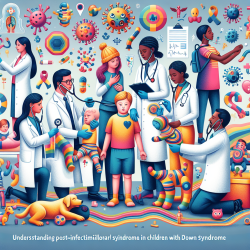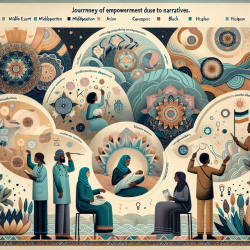As a practitioner in the field of online therapy, staying abreast of the latest research and integrating these findings into your practice is crucial for providing the best possible care to your clients. The article "Organic Mental Impairment in the Elderly: Implications for Research, Education and the Provision of Services" offers valuable insights that can significantly enhance your therapeutic skills and approach.
Understanding Organic Mental Impairment
Organic mental impairment (OMI) in the elderly encompasses a range of cognitive disorders resulting from brain dysfunction. These impairments can include conditions such as dementia, Alzheimer's disease, and other cognitive declines. Understanding the underlying causes and manifestations of OMI is essential for tailoring effective interventions and support mechanisms.
Key Findings from the Research
The report by the Royal College of Physicians provides several key findings that can inform your practice:
- Prevalence and Impact: The research highlights the significant prevalence of OMI among the elderly population and its profound impact on their quality of life and daily functioning.
- Early Detection and Diagnosis: Early detection and accurate diagnosis of OMI are crucial for implementing timely interventions. The study emphasizes the need for comprehensive assessment tools and multidisciplinary approaches.
- Intervention Strategies: The report outlines various intervention strategies, including pharmacological treatments, cognitive rehabilitation, and psychosocial support, that can help manage symptoms and improve the overall well-being of elderly patients.
- Educational Initiatives: Education and training for healthcare professionals, caregivers, and family members are essential for fostering a better understanding of OMI and promoting effective care strategies.
- Research Directions: The study underscores the importance of ongoing research to explore new treatment modalities, preventive measures, and innovative approaches to care for elderly individuals with OMI.
Implementing Research Outcomes in Your Practice
Integrating the outcomes of this research into your online therapy practice can significantly enhance the quality of care you provide. Here are some practical steps to consider:
- Adopt Comprehensive Assessment Tools: Utilize standardized assessment tools to accurately diagnose OMI and monitor cognitive changes over time. This will enable you to develop personalized treatment plans for your clients.
- Incorporate Multidisciplinary Approaches: Collaborate with other healthcare professionals, such as neurologists, psychologists, and social workers, to create a holistic care plan that addresses the diverse needs of elderly clients with OMI.
- Enhance Your Knowledge: Stay updated with the latest research and advancements in the field of OMI. Attend relevant workshops, webinars, and conferences to expand your knowledge and skills.
- Educate Caregivers and Families: Provide educational resources and training sessions for caregivers and family members to help them understand OMI and effectively support their loved ones.
- Advocate for Continued Research: Support and participate in research initiatives aimed at exploring new treatment options and improving the overall care for elderly individuals with OMI.
Encouraging Further Research
While the findings from this report offer valuable insights, the field of OMI is continually evolving. As a practitioner, it is essential to remain curious and proactive in seeking out new research and evidence-based practices. By doing so, you can contribute to the advancement of knowledge and the development of innovative interventions that can significantly benefit your clients.
To read the original research paper, please follow this link: Organic Mental Impairment in the Elderly: Implications for Research, Education and the Provision of Services.










